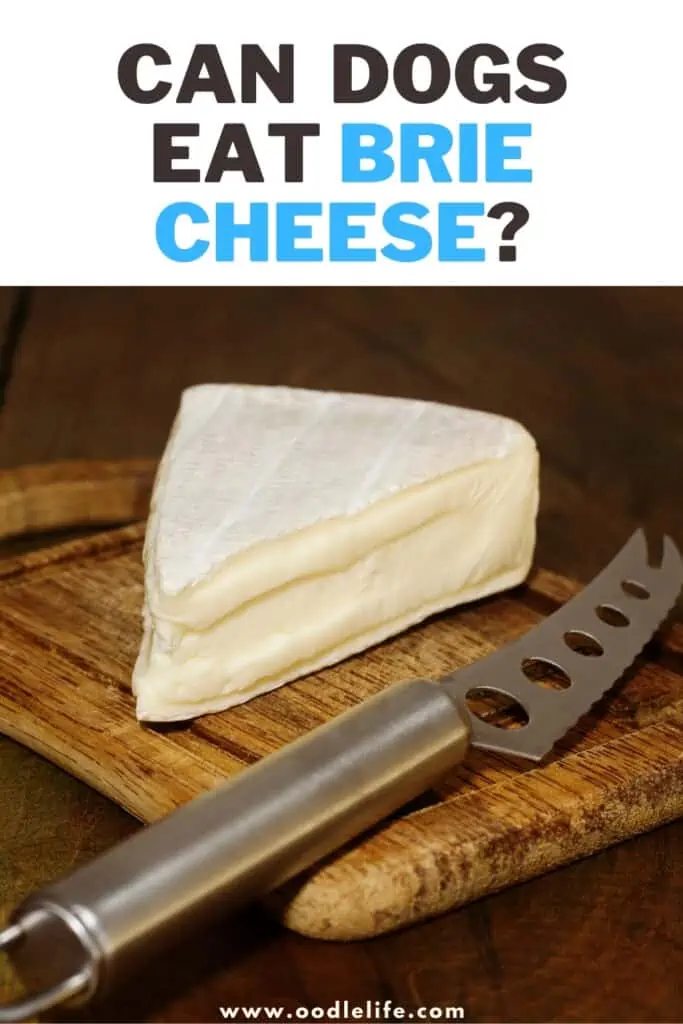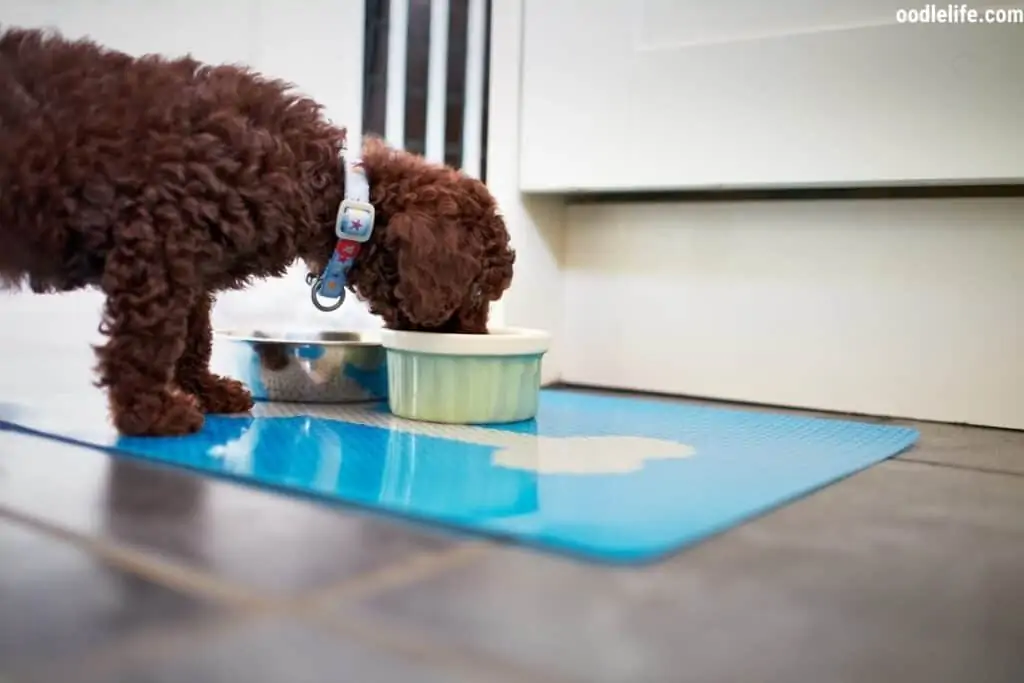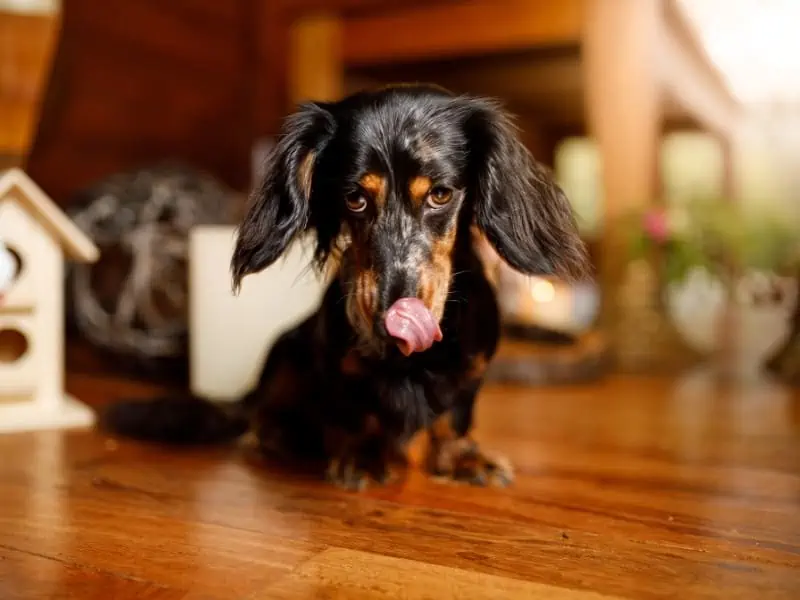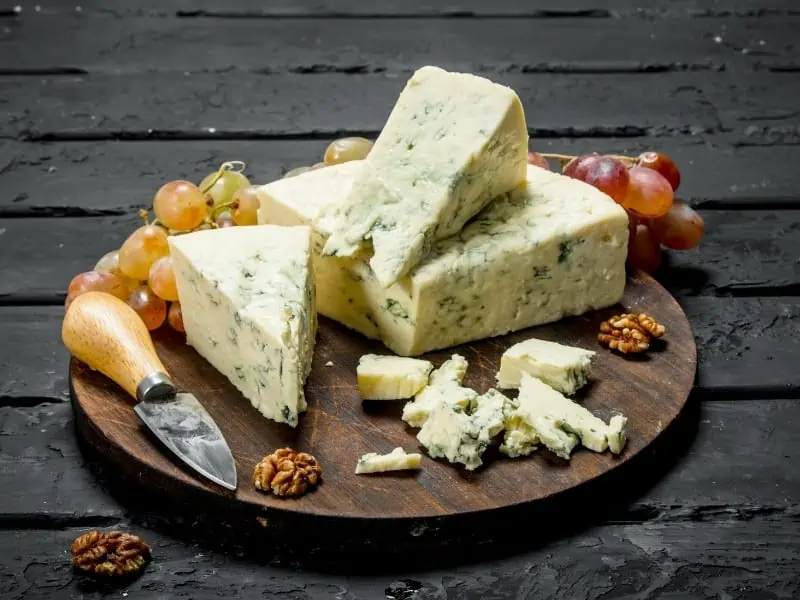Can Dogs Eat Brie Cheese? [Toxic Risk?]
If you’re a dog owner, you probably love to share nibbles of your food with your pup. Of course, some foods are toxic for dogs, but it’s difficult to remember which ones. Can dogs eat brie cheese?
Dogs can eat tiny bites of brie cheese but shouldn’t have too much of it. Like many soft kinds of cheese, brie is too high in fat to be healthy for dogs in the long run. While occasional treats are fine, brie cheese should probably be avoided for most dogs.

If you share food with your dog, it’s crucial to know which foods he can have and which foods he can’t. While some dogs have heartier digestive systems than others, some foods are universally toxic, and some are always unhealthy.
Can Dogs Eat Brie Cheese?
It’s no secret that dogs love human food and will stare adorably at you while you eat until you give them a taste. Some even counter surf, waiting until you’re out of the room to sneak up to the counter and eat the leftovers.
If your puppy ate some of the brie from your charcuterie board, you might be reading this in a panic. However, don’t worry too much: small amounts of brie cheese won’t harm your dog too much.
The Health Risks of Brie Cheese
Brie is a delicious soft cheese that pairs well with bacon and fruit. However, it’s also cheese with one of the highest levels of saturated fat. Along with feta and goat cheese, brie is higher in saturated fat.
Dogs’ digestive systems weren’t built to process that much fat–in the wild, dogs ate mostly lean meat and protein. High fat and fiber foods don’t sit well with dogs, which is why any kind of cheese in large quantities should be avoided.
Long-term effects of a high-fat diet will be obesity, gastrointestinal issues, and possibly pancreatitis. Even when your pet is young, feeding them the healthiest diet will help them live a longer and healthier life. The diet choices you make for your pup now will affect you down the road!

What Should I Do If My Dog Ate Brie Cheese?
If your dog snuck a little bit of brie cheese, you probably have nothing to worry about. Dogs are pretty hardy, and a little unhealthy food will work through their body within a few days. However, if your dog has a constant diet of high-fat cheese, it will lead to health problems.
For dogs who ate a lot of brie cheese at once, you might want to call your vet. It probably won’t be a huge issue, but your dog might be uncomfortable for several days until it passes. Brie isn’t toxic, but your pup’s body wasn’t meant to consume a lot of it at once.
Watch your pup and train him not to eat food that he’s not given. This process may take a while, but it’s worth it to protect your dog’s digestive system. Only give special food treats sparingly. If you’re concerned about your pup’s health, talk to a vet and stick to a prescribed diet plan.

Which Cheeses Are Safe to Give to My Dog?
Of course, not all cheese is created equal. While most dogs will eat cheese indiscriminately, certain types are healthier snacks than others. The healthy types of cheese include:
- Cottage cheese
- Swiss cheese
- Cheddar cheese
- Mozzarella
You still shouldn’t give your dog too much of any cheese, but these lower fat and sodium cheeses can be beneficial both as treats and for your dog’s diet. Always check with a vet before making any changes to your pet’s nutrition.

Which Cheeses Are Dangerous for My Dog?
There are safe cheeses, like cheddar and mozzarella. There are moderately unsafe cheeses, like brie or feta. These cheeses should be avoided because of the high-fat content and potential for health issues down the road. However, some types of cheese are dangerous for your dog and should be avoided.
Cheese that is toxic for dogs includes:
- Blue cheese
- Gorgonzola
- Roquefort
- Stilton
- Specialty flavored cheese
- Anything with dried fruit or garlic in it
While you don’t often come across these cheeses (and are probably even less likely to feed them to your dog), these types of cheese have toxins in them. Any blue cheese can have roquefortine, a toxin for dogs and other pets. If your dog consumes any amount of blue cheese, you should contact your veterinarian as soon as possible.
Specialty cheese isn’t inherently unhealthy but can contain toxic ingredients for your pup. Many specialty flavored cheeses include garlic, which is poisonous to dogs. Some have dried fruit such as raisins, one of the most dangerous foods for dogs to eat. Always check ingredients before you share anything with your pup.

Final Thoughts
Although it’s tempting to share everything with your dog, always check ingredients and make sure you’re making the right choices for your pup’s longevity and health. Brie may be delicious, but it’s too high in fat for dogs to eat regularly.